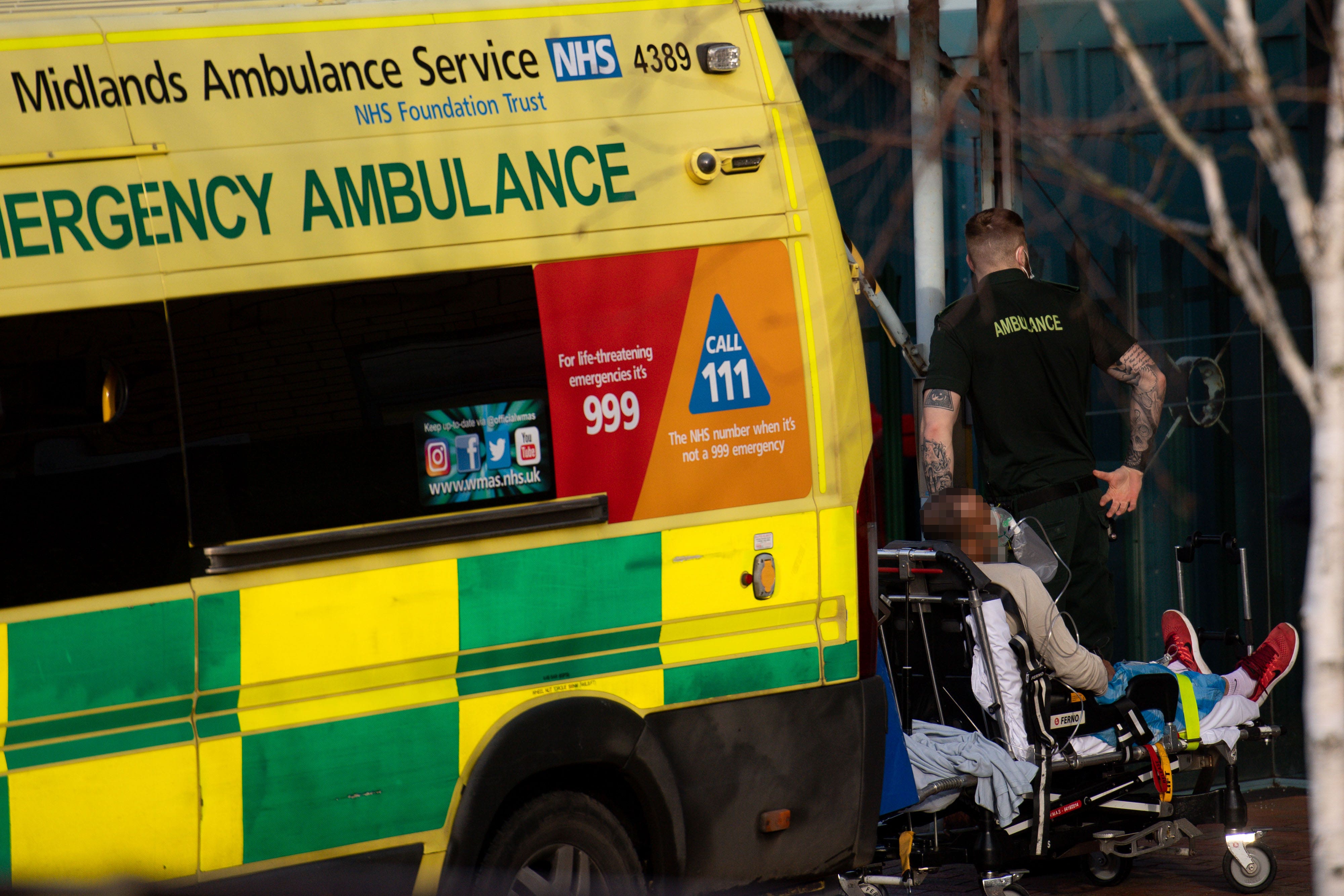Regulator slams ambulance handover delays
One patient had to wait for almost an entire day outside of a hospital.

A health regulator has condemned ambulance handover delays at hospitals after witnessing one patient waiting for almost an entire day in the back of an ambulance.
The crew had to be changed in the middle of the 20 hour-wait at the doors of a hospital A&E in the West Midlands.
Inspectors gave a glowing report of the care provided by West Midlands Ambulance Service, but were highly critical hospital handover delays.
The Care Quality Commission (CQC) said that delays in handing patients over at hospitals meant that ambulances and crews could not be made available to attend other calls.
The regulator warned that long delays in ambulances also pose an “increased risk” for patients.
These handover delays were a reflection of what’s happening across the healthcare system nationally during these times of sustained pressure.
“During our visit the longest a patient had been waiting to be admitted to an NHS hospital, was approaching 20 hours,” inspectors wrote.
“During this time the crew had been changed over to allow them to finish their shift. We were told this is a regular occurrence, especially at the particular hospital.”
The inspectors said that the mattresses and padding on ambulance trolleys was “not suitable for extended periods of use” and warned of increased risk of pressure sores.
Meanwhile inspectors said it is “unclear” who is in charge of personal care for patients during the long waits, with ambulance crews helping patients even though they are not trained to do so.
This also resulted in some patients being aided to go to the toilet in the back of an ambulance, often with the assistance of a crew member from a different gender.
The CQC said the service was not meeting response times as a result of handover delays.
In April 2019, some 6,000 hours of West Midlands Ambulance Service crew time was “lost” due to handover delays at local hospitals. In August 2022, this figure reached a peak of 43,758 hours.
The new CQC report, which was written after an inspection in November, added: “Due to extreme delays at hospitals, the service was not meeting any NHS constitutional ambulance response times, which was a similar picture across the ambulance services nationally.”
It adds: “We were told that patients were sometimes deteriorating before an ambulance arrived. Longer waiting times for an ambulance often meant that lower priority calls became more urgent as time passed and led to calls being made a higher priority.
“Due to pressures within the system, people were not always able to access the service when they needed it or in line with national standards. Not all patients received the right care in a timely way.”
Some patients told inspectors they had faced a 12-hour wait even before an ambulance arrived.
Sonia Brooks, CQC’s deputy director of operations in the Midlands, said: “When we visited West Midlands Ambulance Service University NHS Foundation Trust, we found staff working hard under sustained pressure and leaders trying to manage priorities and issues to keep people safe.
“However, inspectors found response times and handover targets weren’t being met.
“The delays in handing people over at hospitals meant that ambulances and crews couldn’t be made available to attend other calls.
“These lengthy delays at hospitals increased risk to people, particularly those that had been lying on trolleys or stretchers in ambulances for long periods of time.
“Although ambulance staff were working hard to meet national targets, these handover delays were a reflection of what’s happening across the healthcare system nationally during these times of sustained pressure.
“However, people praised ambulance crews for their care and compassion, particularly during the lengthy waits at hospital.
“We will continue to monitor the trust closely, through future inspections, to ensure leaders are mitigating the risks of these issues and that people are receiving high quality care.”
A West Midlands Ambulance Service spokesman said: “We are pleased that the CQC inspectors recognised the enormous lengths that our staff have gone to, to look after patients while they deal with excessive hospital handover delays.
“As a Trust, we absolutely recognise the impact these delays have on the health and wellbeing of our staff as they do all they can to cope with these very difficult conditions.
“Sadly, as the report points out, we have seen some patients wait a very long time for ambulances to arrive as a result of the hospital delays with the resultant increased risk to patients both waiting for an ambulance and those left on ambulance stretchers for very long periods.
“There has been a significant improvement since the turn of the year with delays reduced at hospitals across the region, which has allowed ambulances to get to patients more quickly than we have seen for many months.
“We will continue to work with the hospitals to find new ways of reducing the time that patients are left on ambulances so that our crews can respond more quickly to patients in the community and save more lives.”





